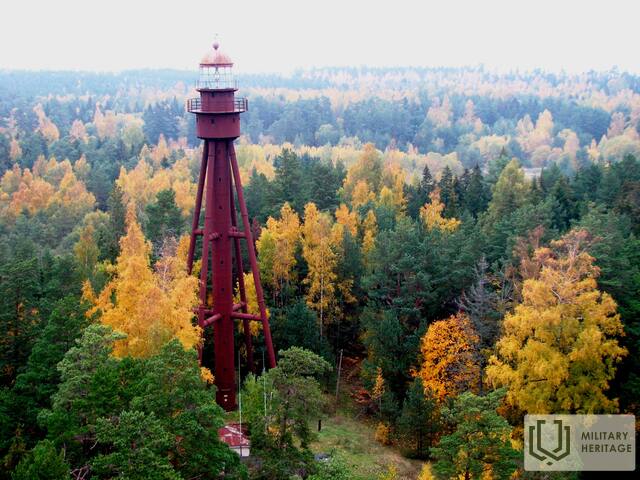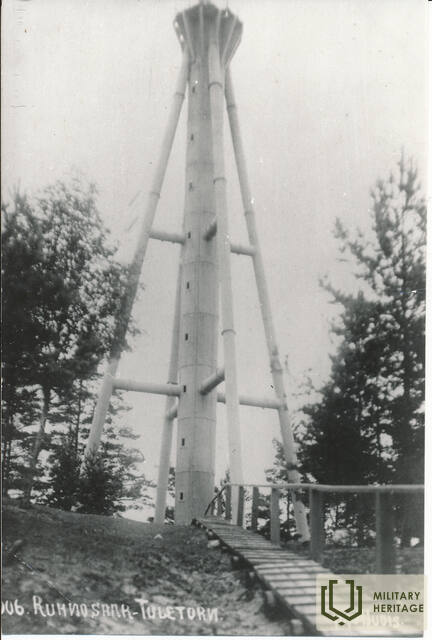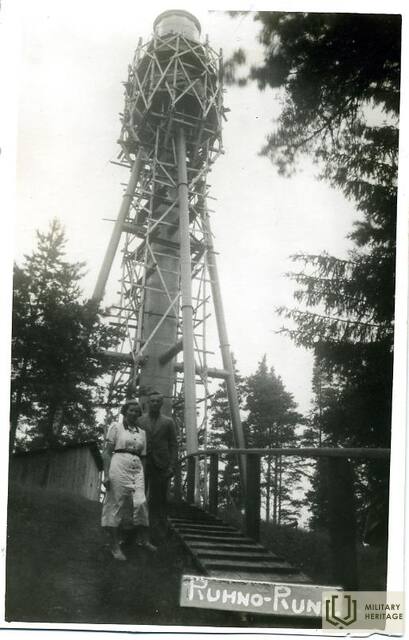Ruhnu Lighthouse Infrastructure

This lighthouse is situated at the highest point on the island, atop Håubjärre (Haubjerre) Hill.
In 1875, components of the metal lighthouse were commissioned from Forges et chantiers de la Méditerranée, based in Le Havre in France, and a second-grade dioptric beacon with a continuous light was ordered from Sautter, Lemonnier & Co. The components arrived in 1876 and the fully assembled lighthouse went into operation in 1877. The 40-metre structure consists of a cylindrical pipe supported by buttresses on its sides. The pipe contains a spiral staircase, which leads to the upper service space beneath the lantern room. The beacon was lit by a four-wick petroleum lamp, its light towering 66 metres above sea level. On 1 May 1915 the Germans blew up the lantern room during combat. Temporary service space was built in 1921. The service space and lantern room were restored in an altered state in 1936 and 1937 according to the designs of engineer Ants Niilre. The auxiliary buildings erected near the lighthouse in the late 19th century are still standing.
Visitors can view the lighthouse, the keeper’s residence and other buildings under state protection as a heritage site.
Related timeline
Related stories
The legend of Ruhnu Lighthouse
The boilerplate lighthouse details produced in the factory were transported by ship to Ruhnu.














